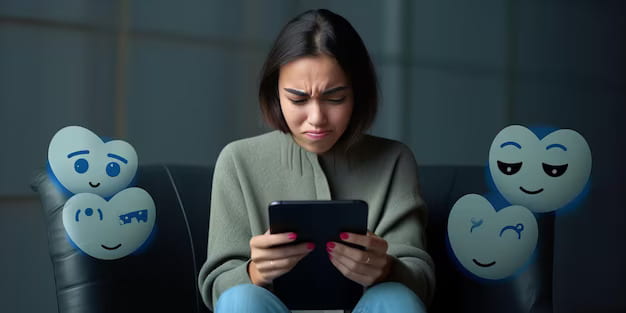
The Social Media Reality: A Mentally Depressing One?
My Teenage Years
Throughout my childhood and teenage years, social media played a pivotal role in my life. It controlled how I think, what I do, and who I am friends with. I felt depressed and did not know why or how to stop it. As a young teenager, I wanted to prove my independence, which is why I decided to take matters into my own hands. That is when I realized social media is somehow linked to the feelings I am getting, and this was when I decided to change my lifestyle and approach towards it. Over the past 10 years, I have been able to take control of my life, by decreasing social media usage and taking control over it, and in this post, I will be showing you how.
Mental Health and Depression
Mental health is something that, at one point in history, was not discussed enough and was seen as a stigma. Today, mental health is highlighted more than ever before. Specifically, disorders such as depression are more accepted in our societies.
That being said, studies show that depression has been at its highest since 2015 among US citizens[1]. Not only that, but another alarming fact is that “About 7 out of every hundred men and 1 out of every hundred women who have been diagnosed with depression in their lifetime will go on to complete suicide. The risk of suicide in people with major depression is about 20 times that of the general population.” [2]
This begs the question: What is causing this drastic change?
The Big Question
Looking at a survey conducted for over 450 people, we can see that more than 40% of those people spend more than 15% of their day on social media. The average person sleeps around 8 hours. So more realistically, those people spend 25% of their time awake on social media.
So, the real question becomes:
How significant is the effect of social media on consumers’ mental health, and more specifically, on causing depression?
What I was Feeling is Real
As it is evident in the below visualization, people who spend more time on social media reported a 43%, very frequent level of depression, compared to 2% for people who spend less than 1 hour on social media (And there is a clear distinction, with an upward trend, from one “Time Spent” category to the other). This raises a red flag; more than 40% of the people used social media for more than 4 hours, and on average, more than 50% of those people have reported frequent/very frequent depression. Although this is a sample of more than 400 people, imagine the world population scenario!
Not only that, but research and evidence show that people in the age category of 18 to 24 have been identified to be the most depressed among all age groups. Something that is crystal clear in visualization 3.
The Simple Solution: Decrease your social media time!
But as a user who was once stuck in the loop, I can definitely say that it’s not that simple, is it?
The Realistic Solution
In reality, you need to build the right habits, over time. Nothing happens overnight, which is why most people try and fail time and time again. The process took me 10 years! Now that might be a long period and this might vary from person to person but some caviats and lessons learned lead me to come up with the following set of recommendations:
- Keep Social Media out of the bedroom: Most people sleep with a phone in their hand and wake up to instagram reels. What you need to do is not let social media be the last thing you think of before you sleep and as soon as you wake up, because how you sleep and wake up shapes how your night and day flow.
- Don’t mindlessly scroll: Whenever you feel like you are about to open TikTok and start scrolling for no reason, take a deep breath, pause, and think. Don’t let your inner social media addict take over.
- Go out for walks without your phone: Going out without thinking about what is happening on your feed allows you to relax and think about your real world concerns.
- Monitor your screen time: Most social media apps allow you to do so, and you should. This helps you realize how much you’ve spent and allows you to incrementally decrease the time you spend until you are no longer a 4+ hours spender.
My Final Thoughts:
Take it from someone who walked the walk, losing your social media dependency, decreasing your depression, and consequently living a better life is not a one day journey. It’s a long, bumpy one. Yet, the outcome is definitely a positive one. So start today, and you will reap the benefits.
Resources:
- Gallup. “Depression Rates Reach New Highs.” Gallup.com, 15 Oct. 2020, https://news.gallup.com/poll/505745/depression-rates-reach-new-highs.aspx.
- Fact Sheet: Some Facts About Suicide and Depression.” Connecticut General Assembly, n.d., https://www.cga.ct.gov/asaferconnecticut/tmy/0129/Some%20Facts%20About%20Suicide%20and%20Depression%20-%20Article.pdf.
- “Prevalence of Depression and Anxiety Symptoms – United States, 2019–2020.” Centers for Disease Control and Prevention, 18 June 2021, https://www.cdc.gov/mmwr/volumes/72/wr/mm7224a1.htm#:~:text=The%20age%2Dstandardized%20prevalence%20of%20depression%20among%20U.S.%20adults%20was,%E2%89%A565%20years%20(14.2%25).